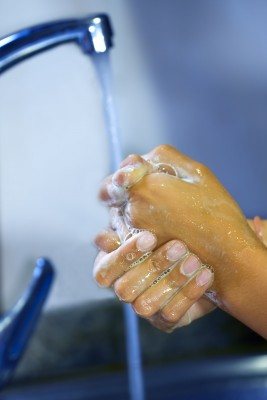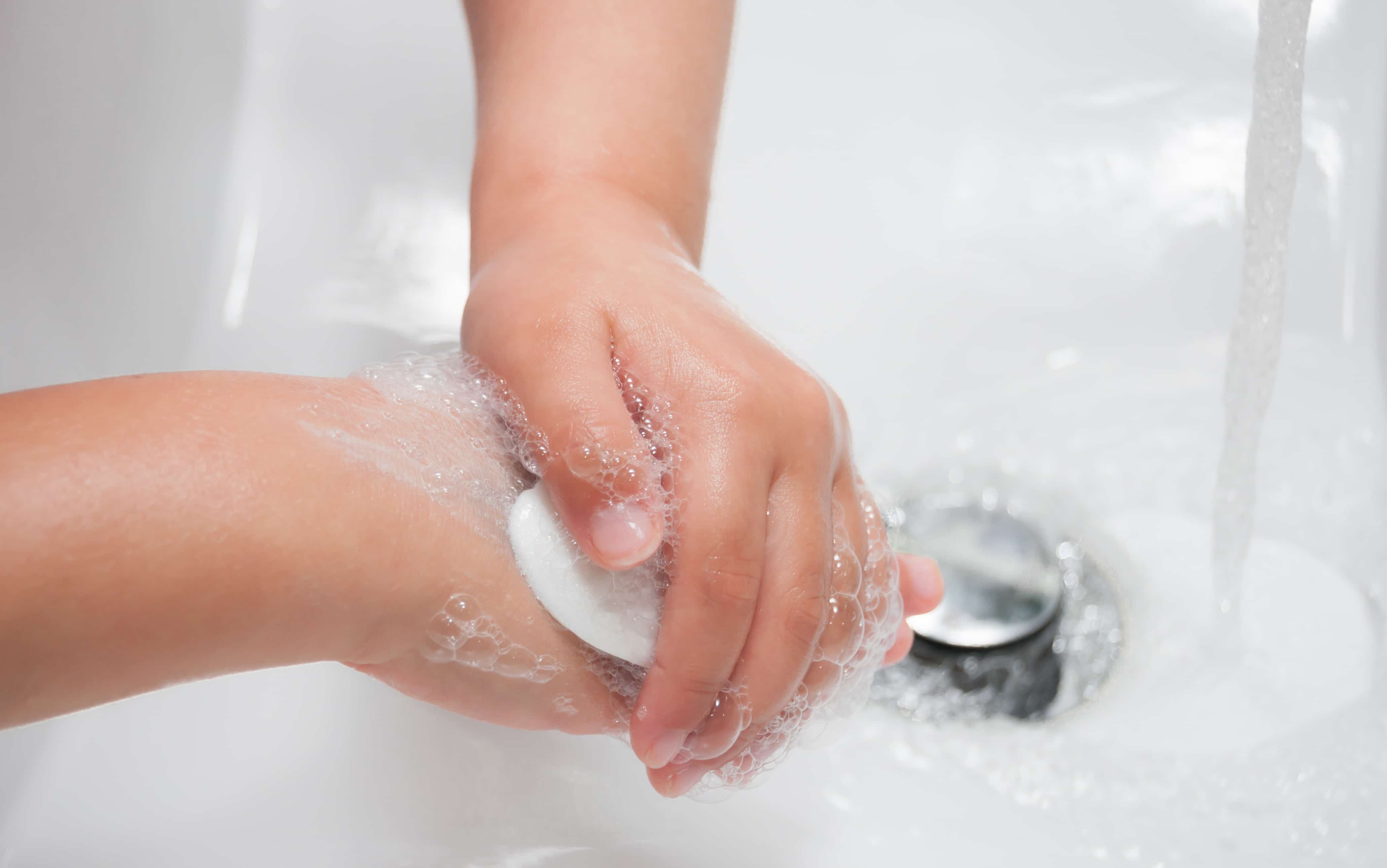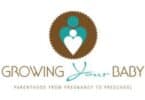Americans spend over 1 billion dollars on antibacterial cleaning products annually, with the understanding that they are an effective way to reduce germs and control the spread of illness. But, according to the Natural Resources Defense Council, antimicrobial products are no more effective than conventional soaps, and the chemicals they contain, to make them antimicrobial, are doing more harm than good.
Many personal care products including, liquid soaps, deodorant bar soaps, acne creams, and even some toothpaste, contain the antimicrobial agent triclosan or triclocarban. Both of these chemicals are known hormone disruptors.
According to NRDC scientist Sarah Janssen, “Triclosan interferes with thyroid hormone. We know that other thyroid-disrupting chemicals have been shown to alter the development of the brain and nervous system causing problems with learning or behavior later in life and we are concerned that triclosan could have similar effects.”
“Triclocarban is a unique type of hormone-disrupting chemical which has not been found to have any hormone-disrupting properties on its own but has been shown to enhance the activity of other hormones, such as the sex hormones, estrogen, and testosterone. Boosting your sex hormones isn’t necessarily a good thing! For someone with a hormonally dependent cancer, that could mean more hormonal stimulation of cancer cell growth.”
Triclosan and triclocarban are not removed from wastewater at treatment facilities and can take decades to break down in the environment. As a result, they have found their way into the ecosystem through rivers, lakes, and streams. Research on earthworms suggests that these agents have begun to make their way into the food web.
Additionally, laboratory studies suggest that antimicrobials are contributing to the development of antibiotic-resistant strains of bacteria. These drug-resistant microbes are already responsible for the deaths of more than 60,000 people annually. There is concern that, if these agents are not removed from the environment, more bacteria will become resistant to antibiotics and the death rate will climb.
But, there is good news. Any chemical that is used as an antimicrobial must be listed in the ingredients on the packaging of personal care products. With a little diligence, consumers can remove these chemicals from their homes themselves.
Good hand-washing practices with conventional soap and water are just as effective at eliminating germs as antibacterial soaps. Wash hands frequently. Proper technique involves rubbing hands vigorously, spending time to ensure that the nails and nail beds are clean, and washing between fingers. Hand washing should take no less than 20 seconds. These habits will remove germs and reduce the likelihood of transmitting illness.
The Food and Drug Administration first drafted legislation to remove triclosan and triclocarban from the market in 1978. The legislation has never been finalized. The NRDC hopes that the FDA will act now to eliminate these harmful chemicals before they do any more damage. – Jen R, Staff Writer
Related Articles:



